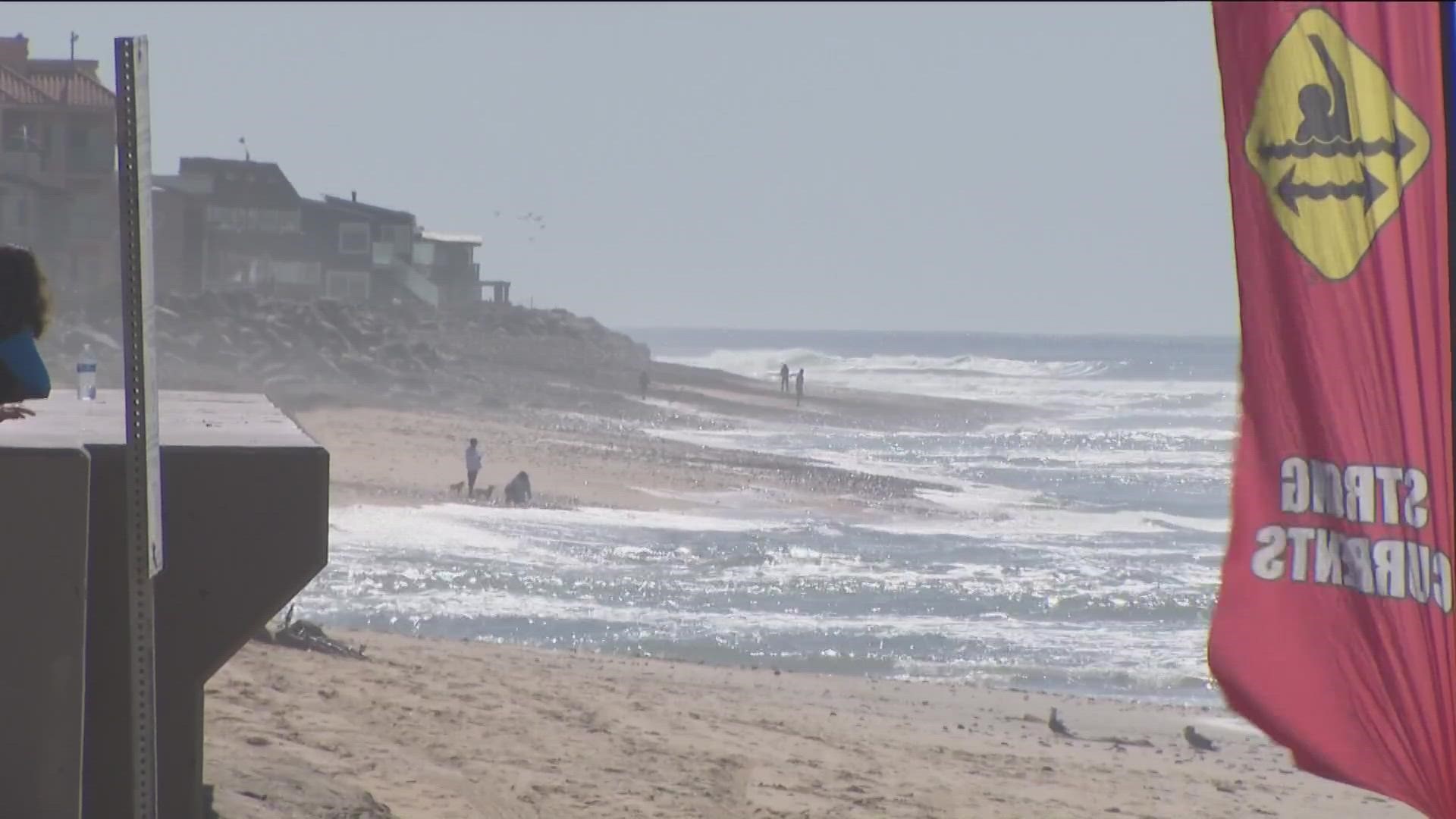SAN DIEGO — A nearly half-billion dollar infrastructure project aims to solve a decades-old problem in the Tijuana River Valley — sewage spilling out into the ocean.
Last summer, the U.S and Mexico signed a $474 million cross-border deal to address multiple issues contributing to this pollution problem. Solutions include doubling the capacity of the South Bay International Wastewater Treatment Plant in the U.S., constructing a new treatment plant at San Antonio de los Buenos in Mexico and repairing aging sewer lines and pump stations in Mexico.
"There are different ways that we can have transboundary flows that affect the United States, and we are working on solutions to all of them," said Sally Spener, U.S. Secretary from the International Boundary and Water Commission.
On Wednesday, CBS 8 got a tour of the plant in South Bay, and learned more about the timeline for these projects.
"We expect to start design this year on the doubling of capacity of the South Bay International Wastewater Treatment Plant," Spener said.
This project wouldn't be possible without the collaboration of both the U.S. and Mexico. In fact, the U.S. is spending $330 million on this deal, while Mexico is also contributing $144 million.
"The Tijuana River watershed is a shared watershed between the two countries," Spener said. "We have to have solutions that are on both sides of the border."
Officials anticipate these core projects will be completed by 2027. But other projects will take even longer.
Overall, this infrastructure deal aims to achieve an 80% reduction in the amount of untreated wastewater that spills out into the Pacific Ocean, which typically happens about six miles south of the border. Another main goal is to reduce just how often this problem reoccurs.
"With the projects that we're going to be implementing over the next five years, we expect to have a 50% reduction in the number of days of transboundary flows as well as a significant reduction in the flow coming from Mexican coastal waters," Spener said.
Sewage spills led to numerous beach closures just last year.
"We're very concerned about the beach closures that have happened," Spener said. "2022 was a particularly challenging year because in the summer there was a major pipeline failure in Mexico."
But this ongoing problem isn't going anywhere yet.
Just days ago, a 60-inch damaged pipe in Tijuana led to sewage contaminating the waters off San Diego's coast. This forced multi-day closures of the beaches in Imperial Beach, some of which are still active.
"It costs us tremendously," Imperial Beach Mayor Paloma Aguirre told CBS 8. "It costs us in our public health, the health of our community, environmental health and our economy, too."
Spener told CBS 8 that pipeline should be up and running again by next week. In the meantime, you can track active beach closures by visiting this website for updates.

